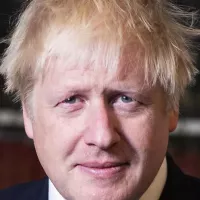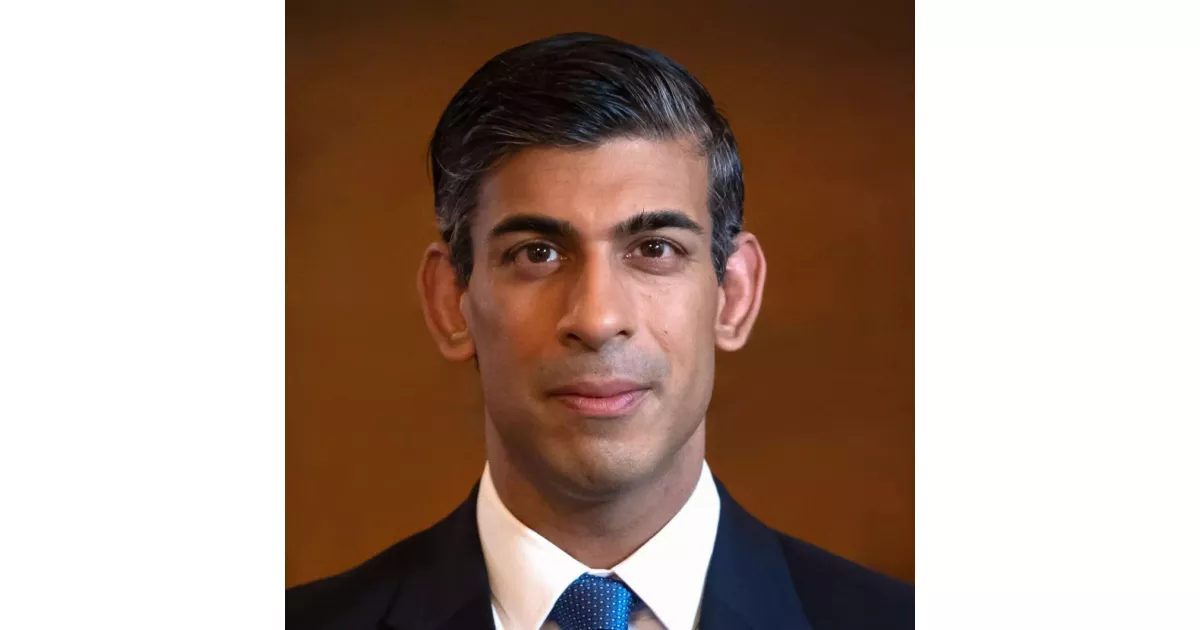How Rishi Sunak built a successful career. Explore key moments that defined the journey.
Rishi Sunak is a British politician who served as Prime Minister of the United Kingdom and Leader of the Conservative Party from 2022 to 2024. After losing the 2024 general election to Keir Starmer, he briefly served as Leader of the Opposition. Prior to becoming Prime Minister, he was Chancellor of the Exchequer from 2020 to 2022 under Boris Johnson. He has been a Member of Parliament (MP) for Richmond and Northallerton, formerly Richmond (Yorks), since 2015.
September 2006: Became partner at TCI
In September 2006, Rishi Sunak became a partner at the hedge fund management firm The Children's Investment Fund Management (TCI).
October 2014: Selected as Conservative Candidate
In October 2014, Rishi Sunak was selected as the Conservative candidate for Richmond (Yorks), a seat previously held by William Hague.
2015: Member of Parliament
In 2015, Rishi Sunak became the Member of Parliament (MP) for Richmond and Northallerton, previously Richmond (Yorks).
2015: Elected to the House of Commons
In 2015, Rishi Sunak was elected to the House of Commons.
2016: Supported Brexit and Endorsed Political Candidates
In 2016, Rishi Sunak supported the campaign to leave the European Union in the EU membership referendum. That year, he also wrote a report supporting free ports after Brexit and endorsed Michael Gove (later Theresa May) in the Conservative Party leadership election.
2016: Supported Brexit Campaign
In 2016, Rishi Sunak supported the successful campaign for Brexit in the European Union membership referendum.
2017: Re-elected as MP
In 2017, Rishi Sunak was re-elected as MP with an increased majority. He also wrote a paper for Policy Exchange on the UK's undersea infrastructure that year.
2018: Appointed Parliamentary Under-Secretary of State
In 2018, Rishi Sunak was appointed as Parliamentary Under-Secretary of State for Local Government in May's second government.
May 2019: May announces resignation
In May 2019, Theresa May announced her resignation after her Brexit withdrawal agreement was rejected by Parliament three times.
2019: Supported Boris Johnson's Leadership Bid
In 2019, Rishi Sunak supported Boris Johnson's successful bid to become leader of the Conservative Party, co-writing an article to advocate for Johnson during the campaign in June.
2019: Parliamentary Under-Secretary and Chief Secretary to the Treasury
In 2019, Rishi Sunak was appointed as Parliamentary Under-Secretary of State for Local Government by Theresa May and later appointed as Chief Secretary to the Treasury by Boris Johnson.
2019: Appointed Chief Secretary to the Treasury
In 2019, Rishi Sunak was appointed as chief secretary to the Treasury by Boris Johnson, serving under Sajid Javid. He also became a member of the Privy Council the next day and represented the Conservatives in debates during the general election.
2019: Re-elected as MP
In 2019, Rishi Sunak was re-elected as MP with an increased majority.
January 2020: Introduced travel advice for COVID-19
In late January 2020, in response to the first confirmed COVID-19 cases, Rishi Sunak introduced advice for travellers coming from affected countries and began contact tracing.
February 2020: Continued COVID-19 response
In February 2020, Rishi Sunak continued to address the first confirmed COVID-19 cases by continuing contact tracing.
February 2020: Briefings on potential new economic ministry
In February 2020, there were briefings in the press suggesting a new economic ministry led by Rishi Sunak might be established to reduce the Treasury's power. It was also reported that Javid would remain Chancellor and Sunak would stay as Chief Secretary to "keep an eye" on Javid.
February 2020: Appointed Chancellor of the Exchequer
On 13 February 2020, Rishi Sunak was promoted to Chancellor of the Exchequer, replacing Sajid Javid, as part of Boris Johnson's first cabinet reshuffle. This occurred after Javid resigned for refusing to dismiss his advisors and replace them with ones selected by 10 Downing Street.
March 2020: Introduced emergency support for businesses and the furlough scheme
In March 2020, Rishi Sunak introduced a program providing £330 billion in emergency support for businesses, as well as the Coronavirus Job Retention furlough scheme for employees, paying 80% of wages up to £2,500 per month.
March 2020: Delivered first budget
On 11 March 2020, Rishi Sunak presented his first budget, titled "Delivering on Our Promises to the British People".
March 2020: Government response to COVID-19 pandemic
On 23 March 2020, Rishi Sunak became prominent in the government's response to the COVID-19 pandemic and its economic impact. On 20 March 2020, Sunak gave a statement on COVID-19.
June 2020: Furlough scheme extended
In June 2020, Rishi Sunak extended the furlough scheme until the end of June 2020.
July 2020: Unveiled spending plan including Eat Out to Help Out
In July 2020, Rishi Sunak unveiled a plan for a further £30 billion of spending, which included a stamp duty holiday, a cut to VAT for the hospitality sector, a job retention bonus for employers, and the Eat Out to Help Out scheme, which ran from 3 to 31 August.
July 2020: Delivered summer statement (coronavirus mini-budget)
On 8 July 2020, Rishi Sunak delivered the July 2020 summer statement (also known as the coronavirus mini-budget) to announce measures aimed at promoting economic recovery following the impact of the COVID-19 pandemic.
September 2020: High Satisfaction Score as Chancellor
In September 2020, Rishi Sunak had the highest satisfaction score of any British chancellor since April 1978, according to an Ipsos MORI poll. He was widely seen as the favorite to become the next Conservative leader and gained the nickname "Dishi Rishi".
September 2020: Delivered Winter Economy Plan
On 24 September 2020, Rishi Sunak delivered the Winter Economy Plan to promote economic recovery following the impact of COVID-19.
October 2020: Second lockdown in England
After a second lockdown in England on 31 October 2020, the Winter Economy Programme was extended several times, until 30 September 2021.
October 2020: Furlough scheme extended again
In late May, Rishi Sunak extended the furlough scheme until the end of October 2020 to avoid mass redundancies, bankruptcies, and high unemployment.
2020: Chancellor of the Exchequer
In 2020, Rishi Sunak became Chancellor of the Exchequer.
2020: Promotion to Chancellor of the Exchequer
In 2020, Rishi Sunak was promoted to Chancellor of the Exchequer and was prominent in the government's financial response to the COVID-19 pandemic.
March 2021: Furlough scheme extended once more
In March 2021, Rishi Sunak announced that the furlough scheme had been extended once more until September 2021.
March 2021: Emphasized the effect the COVID-19 pandemic has had on the economy in budget statement
In his March 2021 budget, Rishi Sunak emphasized the effect the COVID-19 pandemic has had on the economy. The budget also included an increase in the rate of corporation tax from 19% to 25% in 2023, a five-year freeze in the tax-free personal allowance and the higher rate income tax threshold, and the extension of the furlough scheme until the end of September.
June 2021: Hosted G7 summit in London
In June 2021, Rishi Sunak hosted a G7 summit in London, where a tax reform agreement was signed to establish a global minimum tax on multinationals and online technology companies.
September 2021: Extension of Winter Economy Programme ends
After a second lockdown in England on 31 October 2020, the Winter Economy Programme was extended several times, until 30 September 2021.
September 2021: End of furlough scheme
In March 2021, Rishi Sunak announced that the furlough scheme had been extended once more until September 2021.
October 2021: Made third and final budget statement
In October 2021, Rishi Sunak made his third and final budget statement, which included substantial spending promises related to science and education. Many of the announcements to be made in the budget were previewed before budget day, drawing criticism and anger from the House of Commons.
October 2021: OECD signed accord to join the tax reform plan
In October 2021, the OECD signed an accord to join the tax reform plan proposed at the G7 summit hosted by Rishi Sunak in June 2021.
2021: Decline in Popularity
In 2021, Public attitudes towards Rishi Sunak remained broadly positive, though his popularity declined steadily over time.
2021: Sunak's Green Card Status
In 2021, it was revealed that Rishi Sunak had held United States' permanent resident (green card) status until 2021, including for 18 months after he was made chancellor, requiring filing annual US tax returns. An investigation found that he had not broken any ministerial rules.
March 2022: Made final budget, his spring statement
On 23 March 2022, Rishi Sunak made what would ultimately be his final budget, his spring statement. He also promised a reduction in income tax in 2024.
May 2022: Intensified efforts to respond to cost of living and energy crises
In May 2022, Rishi Sunak intensified efforts to respond to the rising cost of living and energy crises with a £5 billion windfall tax on energy companies to help fund a £15 billion support package for the public.
July 2022: Sunak's Approval Ratings Recover Slightly
By the time Rishi Sunak resigned as chancellor in July 2022, his approval ratings had slightly recovered after a period of decline due to the cost of living crisis and scrutiny of his family's financial affairs.
July 2022: Candidacy Announcement for Leadership Election
In July 2022, Rishi Sunak announced his candidacy for the leadership election to replace Boris Johnson, promising to restore trust, rebuild the economy, and reunite the country. He outlined his values and policy pledges, including tax cuts contingent on controlled inflation, temporary VAT reduction on household energy, and stricter asylum definitions. Sunak emerged as one of the final two candidates.
July 2022: Resignation Amid Scandal
In July 2022, Rishi Sunak resigned as Chancellor of the Exchequer amidst a scandal involving sexual harassment allegations against Chris Pincher and Johnson's handling of the situation. His resignation was followed by numerous other ministers, contributing to a government crisis.
July 2022: Resignation and Leadership Election Loss
In July 2022, Rishi Sunak resigned as chancellor and subsequently lost the leadership election to Liz Truss.
October 2022: Appointment as New Leader
In October 2022, following Liz Truss's resignation, Rishi Sunak was announced as the new leader of the Conservative Party after other candidates withdrew from the leadership contest.
October 2022: Increased Favorability After Appointment as Prime Minister
In October 2022, following his appointment as prime minister, Rishi Sunak's personal favorability ratings increased.
October 2022: Return to 10 Downing Street
In October 2022, the Sunaks resumed residence of their former official home at 10 Downing Street, with Rishi Sunak now as prime minister, reversing the trend started in 1997 of prime ministers living in the four-bedroom flat above 11 Downing Street.
December 2022: Appointment of James Forsyth as Political Secretary
In December 2022, Rishi Sunak appointed his close friend James Forsyth, The Spectator's former political editor, as his political secretary.
2022: Prime Minister and Chancellor
In 2022, Rishi Sunak served as Prime Minister of the United Kingdom and Leader of the Conservative Party. Prior to this he served as Chancellor of the Exchequer from 2020 to 2022.
February 2023: First Cabinet Reshuffle
In February 2023, Sunak conducted his first cabinet reshuffle, restructuring government departments and creating new departments for Business and Trade, Energy Security and Net Zero, and Science, Innovation and Technology. Greg Hands took over as chairman from Zahawi. Lucy Frazer replaced Donelan as Secretary of State for Culture, Media and Sport. Rachel Maclean joined the Department for Levelling Up, Housing and Communities.
February 2023: Negotiation of Windsor Framework
In February 2023, Sunak negotiated the Windsor Framework with the EU regarding Northern Ireland's trading arrangements. The vote on the legislation passed in Parliament in March, despite opposition from some Conservative and DUP MPs.
April 2023: Cabinet Resignation
In April 2023, Dominic Raab resigned from his roles as Deputy Prime Minister and Justice Secretary, he was later replaced by Oliver Dowden.
July 2023: Approval Ratings Decline Again
By July 2023, Rishi Sunak's approval ratings had decreased back to a similar level to when he resigned as chancellor. The New Statesman named him as the second most powerful right-wing figure of 2023.
November 2023: Cabinet Reshuffle
In November 2023, Sunak's cabinet reshuffle saw David Cameron return to government as foreign secretary, replacing James Cleverly. Suella Braverman and Thérèse Coffey departed from government, Greg Hands resigned from the cabinet, and Laura Trott was appointed as Chief Secretary to the Treasury.
2023: Shift in Immigration Policy Focus
In 2023, Sunak stated that the priority was to stop illegal immigration, differing from the 2019 pledge to reduce net migration below 250,000 per year.
2023: Corporation tax rate increase
In March 2021, Rishi Sunak emphasized the effect the COVID-19 pandemic has had on the economy. The budget also included an increase in the rate of corporation tax from 19% to 25% in 2023
January 2024: Visit to Ukraine and Security Agreement
In January 2024, Sunak visited Ukraine and signed a new U.K.-Ukraine Agreement on Security Cooperation with Zelenskyy, promising £2.5 billion in military aid, including drones. The UK became the largest deliverer of drones to Ukraine.
May 2024: Announcement of General Election
On May 22, 2024, Sunak announced that he had asked the King to call a general election for July 4, 2024.
June 2024: Conservative Manifesto Release and Campaigning
In June 2024, Sunak sought to rebuild the Conservative's reputation by campaigning on stabilising the economy, the Rwanda asylum plan, strengthening the State Pension, and introducing National Service. The Conservative manifesto, "Clear Plan. Bold Action. Secure Future.", was released on June 11. Sunak was criticised for leaving D-Day commemoration events early to do an interview with ITV, which he later apologized for.
July 2024: Lowest Approval Ratings to Date
By his resignation as prime minister in July 2024, Rishi Sunak had his lowest approval ratings to date. Following the 2024 general election, Sunak received praise for being gracious in defeat.
July 2024: General Election Loss
In July 2024, Rishi Sunak's Conservative Party lost the general election in a landslide to the Labour Party led by Keir Starmer.
November 2024: Leader of the Opposition
In November 2024, after losing the general election to Keir Starmer's Labour Party, Rishi Sunak served as Leader of the Opposition.
2024: Won seat of Richmond and Northallerton
Following boundary changes, in 2024 Rishi Sunak won the seat of Richmond and Northallerton, which replaced his former seat of Richmond (Yorks).
2024: Sunak's Response to the 2024 State Opening of Parliament
In 2024, after Kemi Badenoch was elected as his successor, Rishi Sunak said his party would not oppose the government "for the sake of it", but would hold them accountable on their election promises. He addressed planning law changes and the Rwanda asylum plan, advocating for local input in planning and an alternative deterrent to illegal Channel crossings.
2024: Cabinet Appointments for 2024 General Election
In 2024, most members of Rishi Sunak's cabinet retained their shadow cabinet portfolios heading into the general election, including Jeremy Hunt as shadow chancellor and James Cleverly as shadow home secretary. David Cameron retired, replaced by Andrew Mitchell as shadow foreign secretary. Richard Holden resigned as party chairman, succeeded by Richard Fuller in an interim capacity outside the shadow cabinet.
2024: Income tax reduction promised
On 23 March 2022, Rishi Sunak made what would ultimately be his final budget, his spring statement. He also promised a reduction in income tax in 2024.
January 2025: Visiting Fellow at Hoover Institution
In January 2025, Rishi Sunak became a visiting fellow at the Hoover Institution of Stanford University, and a distinguished fellow at the Blavatnik School of Government. He also signed as an exclusive speaker with the Washington Speakers Bureau.
March 2025: Founding of The Richmond Project
In March 2025, Rishi Sunak and his wife Akshata Murty founded The Richmond Project, a charity aimed at improving the numeracy skills of schoolchildren and adults.
July 2025: Senior Advisor Role at Goldman Sachs
In July 2025, Rishi Sunak took a position as a senior advisor at Goldman Sachs. As part of this appointment, ACOBA has restricted him for a year from lobbying the government, influencing policy, and advising investment funds and foreign governments.
2025: Senior Advisor at Goldman Sachs
In 2025, Rishi Sunak took a position as a senior advisor, returning to his previous employer, Goldman Sachs, with some limits on his lobbying abilities.
Mentioned in this timeline
Ukraine is a country in Eastern Europe the second-largest on...

Boris Johnson a British politician and writer served as Prime...

Coronaviruses are a family of RNA viruses affecting mammals and...
The Guardian is a British daily newspaper founded in as...

Inflation in economics signifies a rise in the average prices...

A tank is an armored fighting vehicle designed for front-line...
Trending

34 minutes ago Pelicans face Clippers: Game action photos, predictions, odds, and Kawhi Leonard's availability.

35 minutes ago Maria Taylor comments on Olympic Village condom shortage; athletes address the issue.

35 minutes ago Horner defends Verstappen, discusses driver swaps, and Wolff's haircut mocked in F1.

36 minutes ago BAFTAs Ceremony Marred by Racial Slur Incident; Delroy Lindo and John Davidson Respond

36 minutes ago Hailee Steinfeld pregnancy updates and skipping Actor Awards

2 hours ago Spielberg's E.T. and Reese's Pieces, Free Movies in Cincinnati, Ohio film event.
Popular

Jesse Jackson is an American civil rights activist politician and...

Hillary Diane Rodham Clinton is a prominent American politician lawyer...

XXXTentacion born Jahseh Dwayne Ricardo Onfroy was a controversial yet...

Kashyap Pramod Patel is an American lawyer who became the...

Jim Carrey is a Canadian-American actor and comedian celebrated for...

Michael Joseph Jackson the King of Pop was a highly...
